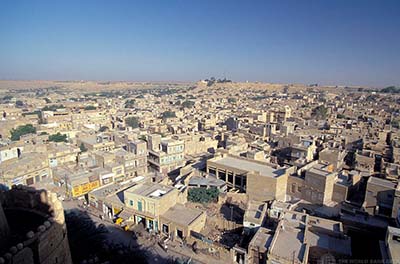Enhancing South-South Cooperation to Reduce Urban Poverty

Key Contact
Andre Herzog
Start Date
End Date
Funding Amount
$ 48,780
Knowledge-providing Countries
Knowledge-receiving Countries
Summary
In 2003, India, Brazil, and South Africa signed a Trilateral Agreement (IBSA) establishing a mechanism for South-South cooperation among these countries and other developing nations to advance inclusive sustainable development and to counter marginalization. These countries shared an urban challenge of millions of poor people living in slums; in response, in 2008 they established a Working Group on Human Settlement (IBSA-HS) to promote common policy approaches in human settlements, knowledge exchanges, and cooperation in skills development, scientific knowledge sharing, and partnerships with NGOs. The World Bank Institute (WBI) and the Cities Alliance have supported IBSA-HS to share knowledge and elevate urban poverty alleviation in global dialogue. Using a grant from the South-South Facility, WBI financed delegates’ attendance at a workshop in Pretoria to learn about human settlement programs and policies, improve the networking and effectiveness of IBSA-HS, and commence work on a strategy for IBSA-HS.
From October 11 to 13, 2011, more than 100 policymakers, city leaders, and representatives of academia and slum dweller organizations assembled in Pretoria ahead of a broader IBSA summit. For three days, delegates reflected on national policies and programmatic approaches to scale up slum upgrading and affordable housing programs. They discussed inclusive urban planning, housing subsides, tenure security, and social inclusion. Delegates visited three informal settlements to understand slum dwellers’ challenges and how participatory approaches have been applied to slum upgrading programs.
Besides improving their know-how in human settlement, delegates took steps to strengthen their networking and the effectiveness and sustainability of IBSA-HS. They launched a Community of Practice to share and disseminate good practices and coordinate South-South activities. They established peer-learning clusters for specific groups (e.g., city officials) to share experiences through videoconferences, joint research, and country visits. Delegates also identified anchor institutions to manage contributions from each country and initiated discussions on a longer-term strategy for IBSA-HS.
The workshop was key in fortifying IBSA-HS, solidifying high-level commitment to expand slum upgrading and affordable housing programs. As a result, the revitalized IBSA-HS platform has supported regular thematic dialogues and visits of experts to countries to advise on human settlement. IBSA-HS members, represented by national secretaries from South Africa’s National Department of Human Settlement, India’s Ministry of Housing and Urban Poverty Alleviation, and Brazil’s Ministry of Cities, finalized the IBSA-HS strategy discussed at the workshop that established a funding mechanism to support cooperation in policy dialogue, technical assistance, and action-research. The IBSA-HS principals lauded this development: “The new IBSA HS strategy is well-structured and is moving in the right direction to achieve IBSA-HS development objectives.”
Beneficiaries / Participants
In 2003, India, Brazil, and South Africa established the India-Brazil-South Africa Trilateral Agreement (IBSA)—a coordinating mechanism for South-South cooperation among these pluralistic countries and other developing nations to advance inclusive sustainable development and counter marginalization. The principles of IBSA are participatory democracy, respect for human rights, the rule of law, and strengthening multilateralism. Recognizing the roles of cities in development and the millions of people living in slums in these countries, IBSA established in 2008 a Human Settlements Working Group (IBSA-HS), which promotes 1) a common policy in human settlements, especially in slum upgrading and housing for the poor; 2) knowledge exchange through workshops, study tours, and other means; and 3) cooperation in trainings, skills development, scientific knowledge exchange, and partnerships with non-governmental associations (NGOs). To advance South-South cooperation and increase the prominence of urban poverty alleviation in global dialogue, the World Bank Institute (WBI) and Cities Alliance helped build the capacity of IBSA-HS through establishing a Secretariat, facilitating site visits, and developing an interactive web-based platform, among other activities.
As part of this support, WBI used a South-South Facility grant to send stakeholders from these countries to a workshop in Pretoria to share know-how and experiences in human settlement, strengthen the networking and effectiveness of IBSA-HS, and outline a strategy for moving forward. The workshop, held in late October 2011 before a broader IBSA Summit, allowed participants to reflect on each country’s policies and programs as well as issues related to inclusive urban planning, housing subsidies, tenure security, and social inclusion. Participants shared insights and good practices from a rich base of programs, including India’s Rajiv Awas Yojana (RAY) and the National Urban Livelihood Mission programs, which improve access to housing and income opportunities in urban slums; Brazil’s PAC-Favela program that scales up slum upgrading and its “My Home, My Life” initiative to build 3.4 million affordable houses by December 2014; and South Africa’s efforts to improve the lives of 400,000 people in informal settlements using participatory approaches.
Moving forward
The exchange was a key building block in a broader Bank program to strengthen the capacity of IBSA-HS. The workshop helped increase high-level political commitment to human settlement policies and programs. It also contributed to the finalization and adoption of a new IBSA-HS strategy, which has established a long-term funding mechanism to support cooperation in policy dialogue, technical assistance, and action-research. Representatives from Brazil’s Ministry of Cities, India’s Ministry of Housing and Urban Poverty Alleviation, and South Africa’s National Department of Human Settlement lauded the new IBSA-HS strategy, noting it is “well-structured, and is moving in the right direction to achieve IBSA-HS development objectives.”
In addition, the workshop and the CoP have helped to unify the voice of IBSA-HS in global dialogue, particularly towards the Post-MDGs (Sustainable Development Goals) and Habitat-III Conference in 2015.

 China
China Colombia
Colombia Denmark
Denmark India
India Indonesia
Indonesia Mexico
Mexico Russian Federation
Russian Federation Spain
Spain United Kingdom
United Kingdom